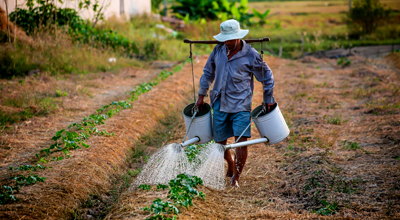
Image: Pixabay
With the support of the State Government, Santa Catarina intends to expand the area planted with winter cereals by 20 thousand hectares, reducing dependence on corn and the costs of producing meat and milk. In Serra Santa Catarina, producers have already started planting and are confident about the harvest. Last Friday (09), the Secretary of State for Agriculture, Fisheries and Rural Development, Altair Silva, was in Palmeira following the sowing of wheat on the property of Heleno Fiabane, a member of the Vale do Itajaí Regional Agricultural Cooperative (Cravil ).
{module Form RD}
“Traditionally in Santa Catarina, in the winter period, there was only a green cover to facilitate crop rotation, now with winter cereals the producer now has another income alternative. Agriculture in Santa Catarina has grown a lot in recent years, and has imported corn from other states to meet demand. We are investing heavily in the winter cereal seed subsidy, in the order of 50%, so that the producer can invest in production to provide inputs for the manufacture of feed. We are very happy that the program is being well accepted”, highlights the secretary.
The Fiabane family is one of the beneficiaries of the Incentive Project for the Planting of Winter Cereals for Grain Production, which will invest R$ 5 million to support the planting of wheat, triticale, rye, oats and barley in Santa Catarina. With this action, the Department of Agriculture provides a subsidy of R$ 250 per hectare actually planted with winter cereals, within a limit of 10 hectares per producer.
“The government has embraced the cause and is giving us all its support. The land remained stagnant in winter, we just covered it, now with the government's encouragement and the support of cooperatives, we are going to invest in planting aiming for greater profitability for the family. Depending on the price paid, we chose wheat, we will plant two varieties here. Furthermore, it will help to rotate crops and improve the soil”, highlights Heleno.
The cultivation of winter grains is an alternative to reduce dependence on corn, production costs and increase the competitiveness of the meat production chain. For the Project to be successful, the Secretariat has partners in all parts of the productive sector: cooperatives, rural producers and agribusinesses.
“With this incentive from the State Government through the secretariat, we have already received around 250 thousand bags of winter cereals this year. This is very important because it occupies the idle moments of the cooperative's silos, in the months of October to November. At the same time, we will cover the soil and provide additional income to producers. There are three advantages at the same time”, adds the president of Cravil, Harry Dorow.
How the Project works
Rural producers seek out agricultural cooperatives participating in the Project to express their interest in sowing winter cereals. The cooperatives provide seeds and inputs for planting and the producer makes payment at the end of the harvest, when they deliver the grains and receive a subsidy of R$ 250 per hectare cultivated.
The grains delivered by producers to cooperatives are destined for agribusinesses and feed factories located in the state. The Project follows the model of the Terra Boa Program, well known among rural producers in Santa Catarina.
The incentive for the production of winter cereals complements other actions developed by the State Government to increase the supply of inputs.
Source: Notícias Agrícolas










